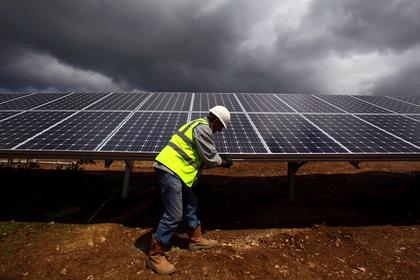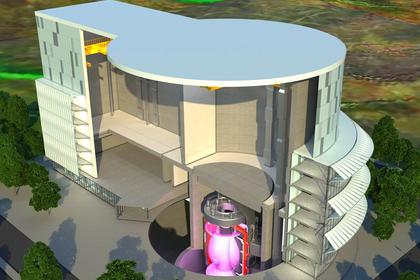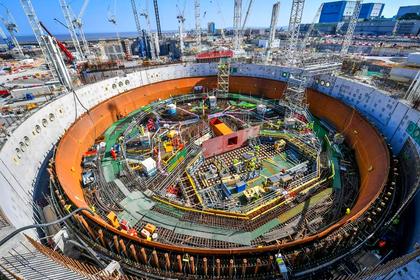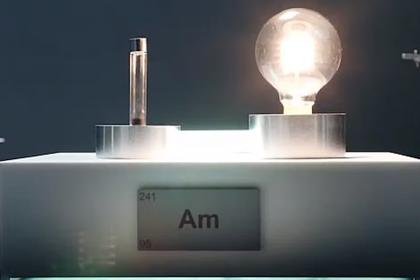
BRITAIN NUCLEAR REVIVAL
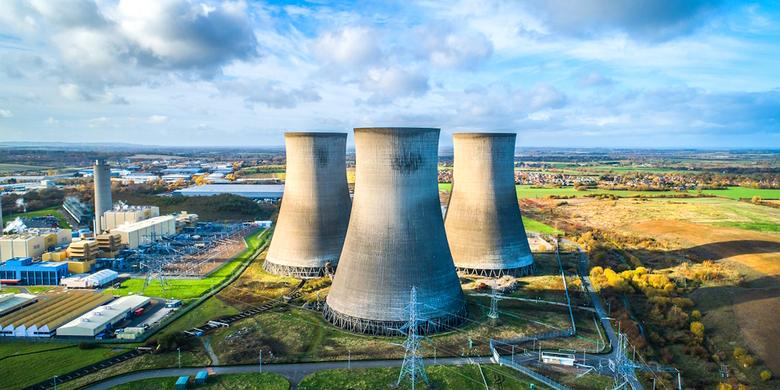
N - 20 July 2023 - Great British Nuclear (GBN) is to drive rapid expansion of nuclear power in the UK at an unprecedented scale and pace as the government kickstarts a competition to encourage the development of small modular reactor (SMR) technology. A joint statement from the Department for Energy Security & Net Zero, GBN, the Nuclear Decommissioning Authority (NDA), Energy Security Secretary Grant Shapps, and Nuclear Minister Andrew Bowie announced “a massive revival of nuclear power”. This is intended to place the UK “at the forefront of a global race to develop cutting-edge technologies to rapidly deliver cleaner, cheaper, more secure energy”.
This will boost UK energy security, reduce dependence on volatile fossil fuel imports, create more affordable power and grow the economy, with the nuclear industry estimated to generate around £6 billion for the UK economy.
Companies can now register their interest with GBN to participate in a competition to secure funding support to develop their products. “This could result in billions of pounds of public and private sector investment in small modular reactor (SMR) projects in the UK – demonstrating the government delivering on its priorities to partner with the nuclear industry and jointly spearhead the future of nuclear technologies,” the statement says.
It notes that, unlike conventional reactors built on site, SMRs are smaller, can be made in factories and could transform how power stations are built by making construction faster, and less expensive.
“GBN will play a key role in helping the government hit its ambition to provide up to a quarter of the UK’s electricity from homegrown nuclear energy by 2050 and achieve among the cheapest wholesale electricity prices in Europe, whilst supporting jobs across the country.”
However, the government also “remains committed to the mega projects of Hinkley Point C and Sizewell C and will work with GBN to consider the potential role of further large gigawatt-scale nuclear power plants in the UK energy mix”.
Energy Security Secretary Shapps said, in opening GBN and the competition to develop SMR technology, which could result in billions of pounds of public and private sector investment, “we are seeing the first brush strokes of our nuclear power renaissance to power up Britain and grow our economy for decades to come”.
Nuclear Minister Bowie said: “As long-standing pioneers of nuclear, today we’re marking its UK revival with the opening of Great British Nuclear, which will play an essential role in transforming the way we power Britain from Britain.” He added that he looked forward to “seeing the world-class designs submitted from all around the world through the competitive selection process, as the UK takes its place front and centre in the global race to unleash a new generation of nuclear technology”.
Simon Bowen, interim chair of GBN said building on the work done at Hinkley Point and Sizewell, the start of the SMR selection process “signifies a real step forward in delivering the scale of nuclear power that Britain needs for secure, sustainable energy future”.
The government also announced a grant funding package totalling up to £157m ($203m), including:
- Up to £77.1m “for companies to accelerate advanced nuclear business development in the UK and support advanced nuclear designs to enter UK regulation, maximising the chance of small and advanced modular reactors being built during the next Parliament”.
- Up to £58m for the further development and design of a type of advanced modular reactor (AMR) and next generation fuel that “could provide high temperature heat for hydrogen and other industrial uses alongside nuclear power.
The winning projects for this latest phase of funding are:
- Up to £22.5m to Ultra Safe Nuclear Corporation UK in Warrington to further develop the design of a high temperature micro modular reactor, suited to UK industrial demands including hydrogen and sustainable aviation fuel production;
- Up to £15m to National Nuclear laboratory in Warrington to accelerate the design of a high temperature reactor, following its success in Japan;
- Up to £16m to National Nuclear Laboratory in Preston to continue to develop sovereign coated particle fuel suitable for high temperature reactors.
A further £22.3m from the Nuclear Fuel Fund will enable eight projects to develop new fuel production and manufacturing capabilities in the UK, driving up energy security and supporting the global move away from Russian fuel. The winning projects include:
- Over £10.5m to Westinghouse Springfields nuclear fuel plant in Preston to manufacture more innovative types of nuclear fuel for customers both in the UK and overseas;
- Over £9.5m to Urenco UK in Capenhurst Chester to enrich uranium to higher levels, including LEU+ and high assay low enriched uranium (HALEU);
- Over £1m to Nuclear Transport Solutions, a subsidiary of NDA, to develop transport solutions to facilitate a supply chain for HALEU in the UK and internationally;
- Over £1.2m to support MoltexFLEX, a UK molten salt reactor developer based in the North West, to build and operate rigs for the development of molten salt fuel.
Julia Pyke, Joint Managing Director for Sizewell C said the government announcement was “a big vote of confidence in Sizewell C, which will continue the transformation in British nuclear construction started by Hinkley Point C”. Both projects “will form a vital part of the future nuclear fleet, helping to lower carbon emissions and reduce energy costs for British households”.
Tom Greatrex, CEO of the Nuclear Industry Association, said the launch of GBN “marks a new era for nuclear deployment in the UK – helping drive a programme of construction at pace and at scale to strengthen our energy security”. The focus on the SMR selection “will demonstrate the commitment to deployment of innovative technologies and open up new opportunities for the UK industrial supply chain here and abroad” He added: “Britain has an important leadership role in the global nuclear industry, and nowhere more so than in our determination to drive Russia out of the nuclear fuel markets. The government’s Nuclear Fuel Fund will bolster those world-class capabilities that make us uniquely placed to help our allies replace Russian supplies with Western nuclear fuel.”
David Peattie, Nuclear Decommissioning Authority CEO, said decommissioning plays a critical role in the lifecycle of nuclear power generation, “and we are committed to sharing our expertise, resource, and assets to support GBN and the government in delivering for the British public”.
GBN, will initially be led by Simon Bowen and Gwen Parry-Jones, interim Chair and CEO. Following the launch of the SMR selection process, once the initial stage is complete, “GBN will down-select those technologies which have met the criteria, and then enter into detailed discussions with those companies as part of an Invitation to Negotiate phase. The initial down-select will take place in the Autumn.”
-----
Earlier:
